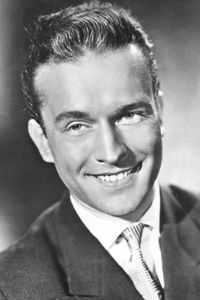Born on November 17, 1925, in the storied city of Dresden, Germany, a place renowned for its rich cultural heritage and architectural grandeur, Horst Naumann embarked on the journey of a lifetime.
Naumann's illustrious career was characterized by an astonishingly vast array of cinematic and television appearances, extending across multiple decades and encompassing a remarkable diversity of roles, each one showcasing his remarkable versatility as an actor. One particularly notable example of his work is the 1969 production "Dead Body on Broadway", a film that served as a testament to his extraordinary range and ability to effortlessly adapt to a wide variety of roles. Moreover, his talents were also on full display in the 1981 television series "Das Traumschiff", a phenomenally popular German program that garnered widespread acclaim and recognition for its exceptional storytelling and captivating performances. Furthermore, his early career was marked by a memorable performance in the 1961 film "Frau Cheneys Ende", a critically acclaimed production that not only solidified his status as a talented young actor but also demonstrated his impressive ability to bring complex characters to life with remarkable depth and nuance.
Naumann's personal life was characterized by two momentous unions, the first being a marriage to Martina Linn, a woman who would exert a profound influence on his early years and provide a foundation for his growth and development.
Later on, he would embark on a second marriage, this time to Christa von Arvedi, a partnership that would bring him immense happiness and companionship, and endure for many years, serving as a testament to the enduring nature of their bond.
Throughout the entirety of his life, Naumann would dedicate an abundance of hours to the company of those closest to him, indulging in the numerous triumphs and tribulations that life has in store. He would bask in the radiant warmth and comforting presence of his loved ones, savoring the joyous moments of shared laughter and the poignant, tear-stained moments of heartfelt connection. Naumann would come to know the profound sense of belonging that arises from being an integral part of a tight-knit group, where bonds of affection and loyalty are forged and strengthened through shared experiences and mutual understanding.
Naumann's relationships would serve as a sturdy anchor, providing a profound sense of comfort and security that would allow him to confidently build a life filled with purpose and passion. As he navigated the unpredictable twists and turns of life's journey, he would find solace in the unwavering love and support of those around him, using these relationships as a catalyst for personal growth and development.
Throughout the ebbs and flows of life, Naumann's relationships would remain a constant source of inspiration, offering a sense of belonging and connection that would help him stay grounded and focused on his goals. His relationships would also provide a safe haven, where he could share his thoughts, feelings, and experiences with others who cared deeply about him.
As Naumann continued to grow and evolve as a person, his relationships would play a vital role in shaping his identity and helping him become the best version of himself. He would draw strength and wisdom from these connections, using them to inform his decisions and guide him towards a more fulfilling and meaningful life.
Ultimately, Naumann's relationships would be a source of joy, comfort, and inspiration, providing a sense of belonging and connection that would enrich his life and help him thrive in the face of life's challenges.
Naumann's life was suddenly and senselessly extinguished on the nineteenth day of February, two thousand and twenty-four, in the city of Duisburg, Germany, a place that holds a cherished and storied history in the narrative of his extraordinary existence.










